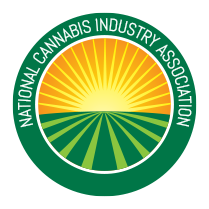A lot goes into staying up-to-date when it comes to regulatory compliance within the cannabis industry. You will put in countless hours reading documents and doing your best to understand what all the legal jargon means. There are numerous requirements that may or may not apply to your business structure. The truth of the matter is you will do your best but at some point in time, you will find yourself out of cannabis compliance with one rule or another. The best thing one can do is to be diligent and relentless when it comes to keeping current with the rules and procedures governing the industry.
You may be asking, well, where do I start?
First, get a compliance book. No joke, go out and buy a large three ring binder, highlighters, sharpies, and dividers because you are going to need them. Make this book your “Compliance Lexicon”. As the Compliance Manager, you are not going to want to continually be looking the same things up so it is nice to have everything in one place. Plus, you can divide the sections for easy reference and make valuable notes in the margins of your lexicon. It will also make it easy to add any updates to the laws, statutes or rules as they change or are created.
So, you have a binder now, what goes in it?
Depending on your state, every state with a legal cannabis program, be it medical or recreational, will have an initiative, measure, and/or house bill that has been passed allowing the State’s cannabis program to exist. These documents will become the basis of the laws governing the industry within your State. Review these, know them well, and make them part of your Compliance Lexicon. Remember, these documents are early stage documents, so when you go through them you will notice they usually lay out a more general level of requirements that will have to be addressed and adhered too but leave out many of the critical specifics compliance needs for day-to-day operations of a cannabis business.
Even though it will be a lot, read every word as there will be important specifics you will want to note before setting up any leases or buying and breaking ground on a new location. Requirements such as zoning, advertising, and labor are often overlooked but will greatly affect your business. These documents may also break down the industry structure in the State to allow for different types of grows and processing. These could range from allowing or restricting home grows to defining commercial growing tiers and the coinciding processing that may or may not be done with the plant to create derivative products. They usually cover these “big ticket” items but they may change.
At this stage, compliance is a contact sport, you need to get in, get involved, and be active. You will have to be prepared to stalk and hunt things down. You may be asking yourself, “What is this guy talking about right now?” Well, when you are at this point in the process and the powers that be are drafting the laws they will often open up topics for public discussion and comments. This is your opportunity to make your voice heard and aid in directing the policies that will eventually govern your industry. So get out there and make sure you are actively following these discussions as well as actively contributing to them. You may have to hunt down the active links to these discussions. Often they are managed by the Alcohol and Cannabis Control Board or equivalent for the State. And although you may want to at times, please do not ever tackle any of your representatives. This is not what I mean by “compliance is a contact sport” and will most definitely ensure your business will not get a license.
The next major document you will want to add to your lexicon is the actual law that is issued by the State. Usually, in the Act or Law, you should give much greater detail, and it should expand on what was put together in the initial Initiative or Measure. Most people mistakenly assume compliance only deals with the State’s tracking systems. This is not the case at all, so be cognitive and make sure to note any and all of the governing agencies listed throughout the Act or Law and any corresponding laws or doctrine linked to these regulations as they will have to be followed and adhered to as well. Depending on the State you may have many different agencies involved.
Justin Dufour | Value Engineer
Justin is the founder of Viridian Sciences, and currently a Value Engineer at Navigator Business Solutions. Justin focuses his expertise on helping customers and prospective clients understand the unique demands and needs of the Cannabis industry, acting as a single source of in-depth industry, and product knowledge. He works closely with clients and the development team to deliver the Viridian Sciences solution, built on strength of the SAP BusinessOne solution, to deliver a complete, flexible and scalable business solution for all sentiments of the Cannabis Industry.



